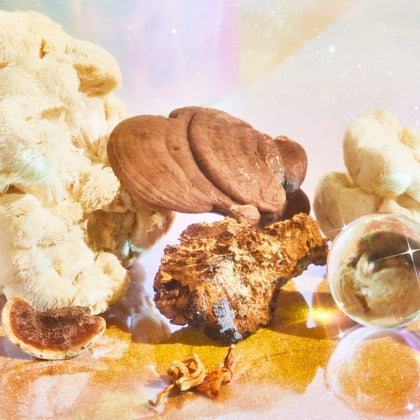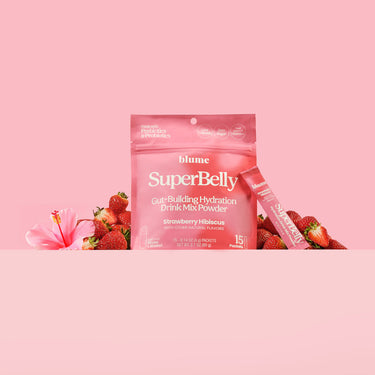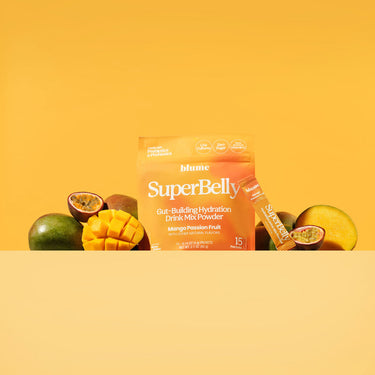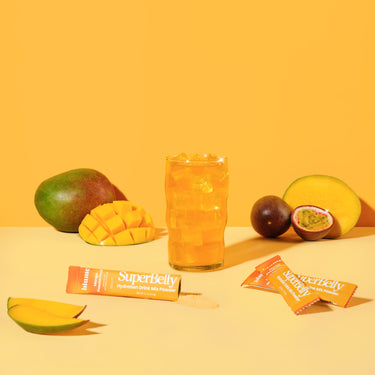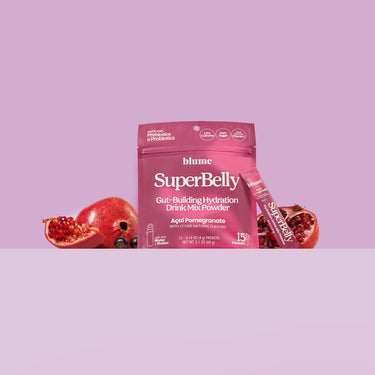
There’s nothing better than sipping an iced Matcha Coconut on a hot sunny day. As refreshing and lightly tropical this blend is, did you know there’s a (not-so) secret ingredient that gives it that bright pop of green, and deeply rooted flavor?
If you said moringa leaves, you’ve got it babe! As a nutritional scientist, moringa is one of my all-time favorite superfoods. For starters, it tops all the vitamin charts (and I mean all of them). Moringa has 92 nutrients and 46 types of antioxidants, and it’s been shown to support the healing from over 300 different diseases! *Mic drop*
Think of moringa as nature’s multivitamin. It has 7 times more vitamin C than oranges, 10 times more vitamin A than carrots, 17 times more calcium than milk, 9 times more protein than yogurt, 15 times more potassium than bananas, and 25 times more iron than spinach. Does it get any better?

Moringa is also known as The “Miracle Tree”, for many reasons. Peep the deets below to find out why:
- It's Super High in Vitamins: It’s high in vitamin C, vitamin A, calcium, potassium, iron, carotenoids, antioxidants, B vitamins, vitamin E, zinc, phosphorus, copper, iron, and magnesium. In other words, this super star does it all.
- It’s a Perfect Plant-Protein Source: As if this superfood couldn’t get any better, moringa is also high in protein. It’s highly absorbable, which is actually hard to find in plant-sources! It contains a balance of all 9 essential amino acids and 7 non essential amino acids. If you are vegan, vegetarian, or are looking for a boost from your plant friends, moringa may check all the boxes you’re looking for.
- It’s Loaded with Health Benefits: Moringa has been found in studies to contribute to lowering oxidative stress, inflammation, blood sugar and blood pressure. It has been shown to improve outcomes of many different diseases and conditions, like asthma, diabetes, cardiovascular disease, cancer, liver damage, ulcers, pneumonia, Chrohn’s disease and many more!
- It’s Earth-Friendly & Resistant to Climate Change: Moringa requires little water to grow, which means water is saved during the farming process as these beauties grow. All parts of the plants can also be consumed making it a high yield product! Moringa trees even grow quickly, and in poor soil conditions like droughts and hot climates, which make them an important, nutrient-dense ingredient as we continue to be cautious of the increasing temperature of Earth.
- It Could be the Missing Piece for Solving Malnutrition: Because moringa can grow in drought conditions and contains many micro and macronutrients, it’s thought to be one of the best ways to fight malnutrition. We wonder—does this make it a superfood or a superhero?
Is it Safe for Pregnancy?
There’s a lot of supporting research to show that moringa is safe during pregnancy, and even recommended! Studies have shown that the micronutrients in moringa support the mothers overall health, which ensures that the fetus has enough nutrients to grow, and the child has an adequate nutritional status.
This review looked at 7 studies, and concluded that moringa supplementation improved nutritional status of the mother, decreased stress and cortisol levels in the mother, increased birth weight of the baby and weight of placenta. See our references below for more studies to read on moringa safety in pregnancy.
However, it may not be safe for pregnant women, so always speak to your health care, since every pregnancy is different.

Cicely Huinink is a Nutritional Scientist and Blume's very own Product Development Specialist. With a BSc. in Nutritional and Nutraceutical Sciences and MSc. in Human Health and Nutritional Sciences from the University of Guelph, her goal is to make information about science, wellness, and functional foods fun and accessible.
References
Basri, H., Hadju, V., Zulkilfi, A., Syam, A., Indriasari, R. (2021). Effect of Moringa oleifera supplementation during pregnancy on the prevention of stunted growth in children between the ages of 36 to 42 months. Journal of Public Health Research, 10:pg 2207. doi:10.4081/jphr.2021.2207
https://journals.sagepub.com/doi/pdf/10.4081/jphr.2021.2207
Hadju V, Dassir M, Sadapotto A, Putranto A, Marks G, Arundhana AI. Effects of Moringa Oleifera Leaves and Honey Supplementation during Pregnancy on Mothers and Newborns: A Review of the Current Evidence. Open Access Maced J Med Sci [Internet]. 2020 Sep. 20 [cited 2022 Jul. 6];8(F):208-14. Available from: https://oamjms.eu/index.php/mjms/article/view/4670
Mahmud, Nur & Tahir, Abdullah & Arsunan, A.A. & Burhanuddin, Bahar & Veni, Hadju. (2020). Effect of moringa leaves during pregnancy on growth and morbidity in 0–5 months. Enfermería Clínica. 30. 61-65. 10.1016/j.enfcli.2019.10.041.
Islam Z, Islam SMR, Hossen F, Mahtab-Ul-Islam K, Hasan MR, Karim R. Moringa oleifera is a Prominent Source of Nutrients with Potential Health Benefits. Int J Food Sci. 2021 Aug 10;2021:6627265. doi: 10.1155/2021/6627265. PMID: 34423026; PMCID: PMC8373516.






